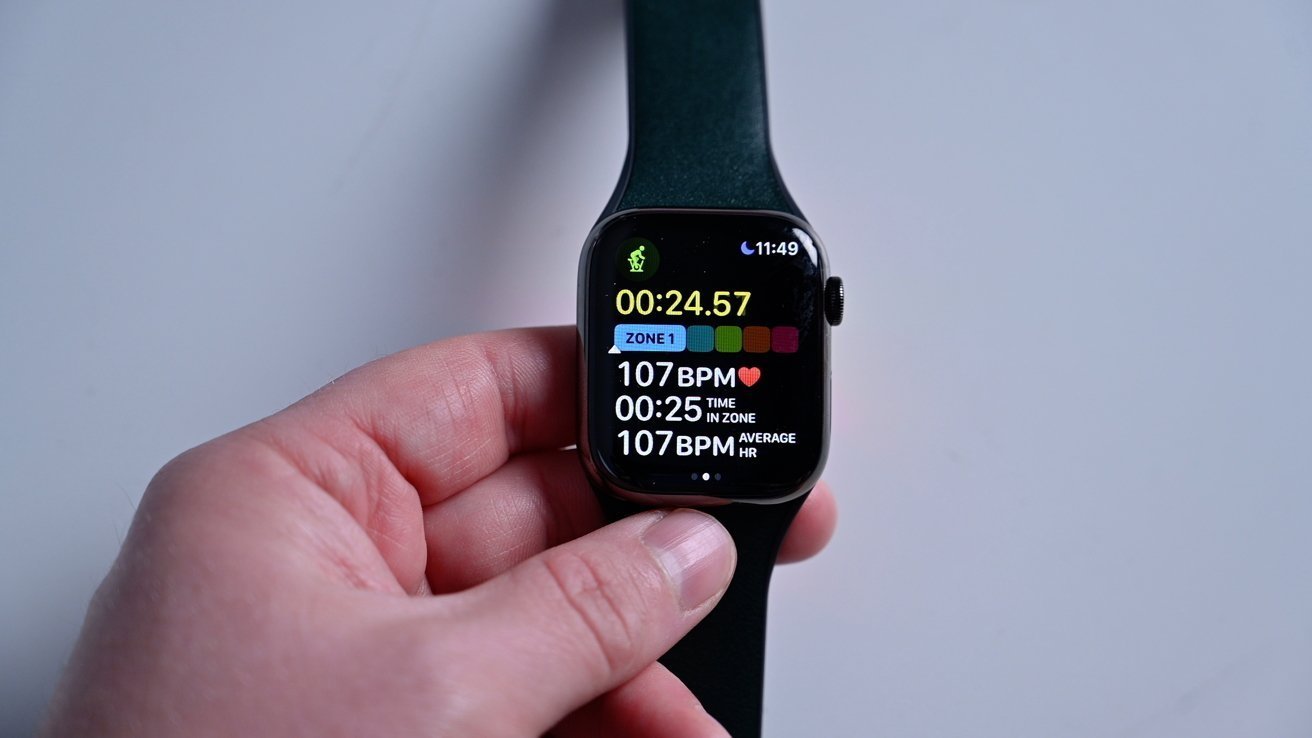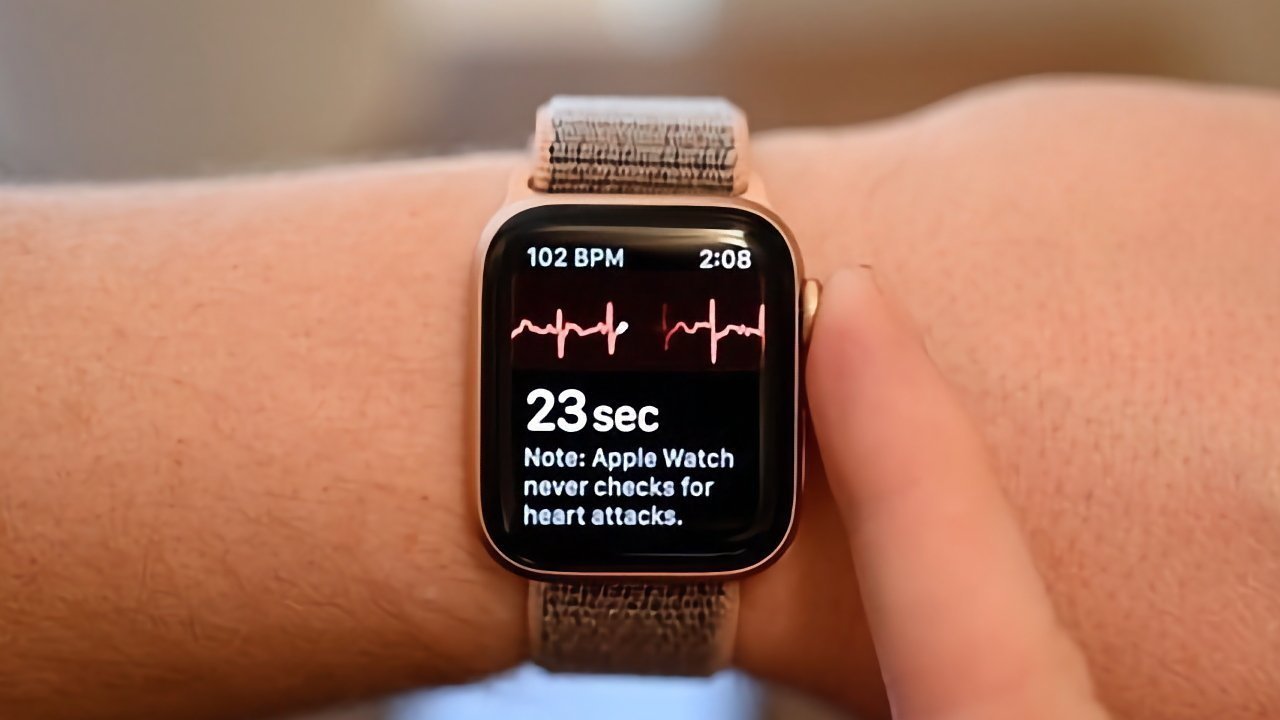The Apple Watch continues to showcase why it can be a useful device to not only keep tabs on fitness goals but also keep an eye on potentially critical health issues.
It has become a recurring theme to hear stories about how the Apple Watch has saved someone's life in various scenarios. In June and July of 2023, for instance, the smartwatch helped save a woman from a high-risk blood clot and helped a Norwegian trail runner in their time of need.
One of the many health categories Apple Watch can track is "Cardio Fitness," or VO2 max, which tracks the maximum amount of oxygen your body can intake while you work out. It's also known as cardiorespiratory fitness, and the numbers the smartwatch tracks and displays are an estimate.
However, it turns out that keeping tabs on those estimates, especially when notifications are repeatedly delivered, can lead to a major diagnosis, as reported by My Healthy Apple.
That's what happened to one individual, an otherwise healthy 40-year-old man who kept receiving notifications for low VO2 max. Researchers at Shackler School of Medicine, Tel-Aviv, and Leviev Heart Center, Israel, ran several tests on the man and successfully identified a major heart issue: familial nonischemic cardiomyopathy with severely reduced left ventricular systolic function.
The findings were originally published in the Interactive Journal of Medical Research. As for the man, the symptoms improved after treatment was initiated, including more cardio exercise routines.
The man was wearing an Apple Watch Series 6.
Familial nonischemic cardiomyopathy develops as heart muscle walls thin and become weaker in at least one chamber, enlarging that area. This results in the heart being unable to pump blood as efficiently as it normally could.
The researchers indicate that having a device like the Apple Watch can detect these categories, especially as it relates to early screenings that can potentially identify serious issues before they become a larger issue.
They also point out that better studies regarding these devices and subsequent approval from the Food and Drug Administration (FDA) are still important.
Notifications matter
Keeping track of the data points is one thing, but the notifications Apple Watch can hand out are important to keep tabs on. Just as this specific case shows, repeatedly receiving the same notification can clearly indicate a larger issue at hand.
And that will certainly be the case in the future, especially as the Apple Watch continues to evolve and add features. For instance, the Apple Watch may one day be able to detect Parkinson's disease, up to 7 years earlier than what's available now.
 Evan Selleck
Evan Selleck


-m.jpg)






 Marko Zivkovic
Marko Zivkovic
 Mike Wuerthele
Mike Wuerthele
 Christine McKee
Christine McKee
 Amber Neely
Amber Neely
 Wesley Hilliard
Wesley Hilliard

 William Gallagher
William Gallagher









2 Comments
My lilttle brother (he's only 67) was getting alerts from his Apple Watch that he was experiencing aFib. He went to the VA, and an ER doctor did an ECG and told him it "probably" wasn't aFib. The next day he was walking his dog, and started breathing hard, and felt weak and dizzy. His watch was giving him constant alerts. After "strong" urging from his family, he went to a private cardiologist, who did ECG and blood work, and told him that yes, he was indeed in aFib. Two cryo-ablations, two inversions, and an implant (Watchman) later, he's doing great. Pay attention when the watch alerts, but go see a real doctor!
Very useful! Two features: Cardio Fitness and cardio Recovery. These are two line charts everyone can read. They give me my ongoing fitness and recovery progress after heart surgery and cardio rehabilitation. To myself, these two features are better than the stress test and stress echocardiogram report.